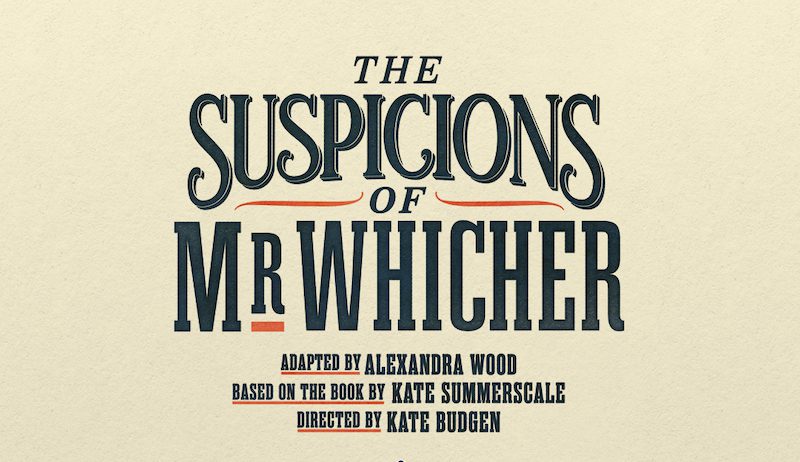Can a murder mystery truly be a “mystery” when the criminal has long since been brought to justice?
This is the question behind The Watermill Theatre’s new production of “The Suspicions of Mr Whicher” – a question that may already be familiar to viewers through the 2011 TV series of the same name, and the book by Kate Summerscale upon which it (and the play) was based.
The play tells the story of the historical figure Constance Kent (Eleanor Wyld), an upper class youg woman serving time in prison during the late 1800s for the murder of her younger half-brother Saville, several years before.
Yet she did not immediately face imprisonment; despite the suspicions of Detective Inspector Whicher (Christopher Naylor), she avoided punishment for several years. Having appeared to have made unfounded allegations against Kent, Whicher has himself fallen into disrepute within the police – only to be vindicated, years later, when Kent confesses to the murder.
All of this takes places before the play begins; and is a matter of historical record.
Which begs the question: why did Kent suddenly confess to the murder, when no-one believed her guilty of it? Was the overcome by her conscience? Or was she covering for someone else?
Sharing a similar concern, Whicher confronts Kent in the prison, demanding the truth.
It’s a brilliant framing device – Whicher’s interrogation forms the backbone of the play, with Kent flipping between the past and present in the course of answering his questions (the time jumps clearly delineated for the audience via subtle changes in light and sound).
A strong cast bring the various members of her family household to vivid life – including her adulterous father (Jim Creighton), manipulative stepmother (Connie Walker), upwardly-mobile brother (Sam Liu), and the family nanny (Robyn Sinclair).
It quickly becomes apparent that there may be more than one murderer in the household, which adds a layer of depth to the story – was it perhaps seen as easier, and better, for a young woman to take responsibility for the crime, rather than a man? Were the gender and family norms of Victorian Britain in some way intertwined with the crime, and the public’s response to it?
The play’s shift in focus from “whodunnit?” to “whydunit?” is likely to make or break your enjoyment of the evening – if you’re after a light and witty Agatha Christie play, this isn’t it. It reminded me of Alan Moore’s “From Hell”, which examined the aspects of Victorian Britain that may’ve indirectly led to the Jack the Ripper murders (rather than simply guessing who the Ripper was). This makes for a more thought-provoking approach to the “murder mystery” format, and seems fitting for what is, after all, a real-life crime.
Well-written, well-acted and with an impressive and atmospheric set design, “The Suspicions of Mr Whicher” runs from the 5th May to 10th June; tickets can be booked at https://www.watermill.org.uk.














































